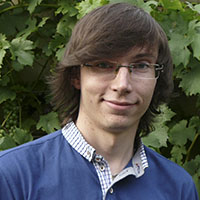PurPest Consortium
COORDINATOR
 NIBIO is one of the largest Research Institutes in Norway and contributes to food security and safety, sustainable resource management, innovation and value creation through research and knowledge production within food, forestry and other biobased industries. NIBIO delivers research, managerial support and knowledge for use in national preparedness, as well as for businesses and the society at large.
NIBIO is one of the largest Research Institutes in Norway and contributes to food security and safety, sustainable resource management, innovation and value creation through research and knowledge production within food, forestry and other biobased industries. NIBIO delivers research, managerial support and knowledge for use in national preparedness, as well as for businesses and the society at large.
The Division of Biotechnology and Plant Health conducts research to understand the fundamental biogeochemical mechanisms around the outbreak of plant pests (including plant pathogens), development of prediction models, damage thresholds and diagnostic tools to assess pest risks.
In Purpest, NIBIO will determine volatile organic compounds emitted by the cotton ball worm and by Phytophthora ramorum and related species as well as the host plants attacked by these pests. NIBIO is coordinating PurPest by supporting active scientific interaction between the partners and mediates the interaction between the EU commission and the PurPest consortium.
NIBIO team:
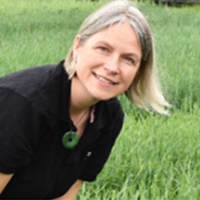 Andrea Ficke is a cereal plant pathologist working at the Norwegian Institute of Bioeconomy Research, Division biotechnology and Plant health in Ås, Norway.
Andrea Ficke is a cereal plant pathologist working at the Norwegian Institute of Bioeconomy Research, Division biotechnology and Plant health in Ås, Norway.
Her main interest is the sustainable management of plant diseases and their effect on crop yields in agriculture.
Currently she is focusing on leaf blotch diseases in wheat and barley and sclerotinia stem rot in oilseed crops. This also involves the collection and identification of volatile organic compounds from wheat diseases in the field.
She is coordinating the PurPest consortium and facilitates international networks to support practical application of the PurPest’s research results.
More information:
(Responsible)
Gunda 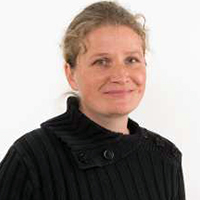 Thöming is working on agricultural entomology and insect chemical ecology at the Norwegian Institute of Bioeconomy Research, Division biotechnology and Plant health in Ås, Norway.
Thöming is working on agricultural entomology and insect chemical ecology at the Norwegian Institute of Bioeconomy Research, Division biotechnology and Plant health in Ås, Norway.
Her main interest is insect behaviour, plant-insect interaction including pest insects and their natural enemies, and the development of odour-based insect pest management tools.
She is focusing on plant volatiles and their role in insect-plant interactions - and how to use such volatile signals for sustainable plant protection.
In PurPest she is working on the Cotton Bollworm and the identification of the Cotton Bollworm related herbivore induced plant volatiles and oviposition deterrents.
More information:
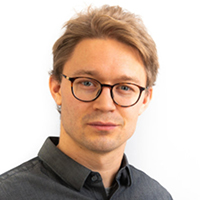
Martin Pettersson is a tree plant pathologist working at the Norwegian Institute of Bioeconomy Research, Division biotechnology and Plant health in Ås, Norway.
His research focuses on Phytophthora and fungal diseases in forests, ornamental horticulture, Christmas trees and nurseries.
In the PurPest project, Martin is working on VOC collection from Phytophthora cultures (e.g., quarantine plant pathogen Phytophthora ramorum) and infected plants.
More information:
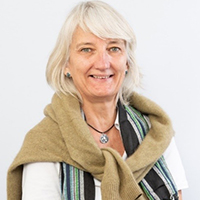
Solveig Haukeland is a nematologist working at the Norwegian Institute of Bioeconomy Research, Division Biotechnology and Plant Health, Norway, and in Kenya at icipe (International Centre of Insect Physiology and Ecology).
Her main interest is creating awareness on nematodes and finding solutions to manage them. Currently her focus is cyst nematodes in potatoes and cereals.
She is also involved in monitoring of the Pinewood Nematode (PWN) a key research component in the PurPest project – we need better methods for detection to avoid further spread.
More information:
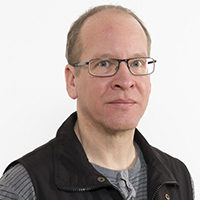
Volkmar Timmermannd is working at the Norwegian Institute of Bioeconomy Research (NIBIO), Division of Biotechnology and Plant health in Ås, Norway. His main research topics and interests are forest health, forest monitoring, invasive species, ash dieback. He is leading the Norwegian forest damage monitoring programme, representing Norway in ICP Forests, and is holding the co-chair of ICP Forests’ Expert Panel on Crown Condition and Damage Causes.
More information:
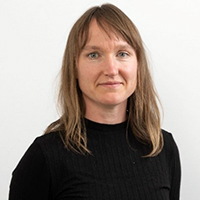
Dalphy Harteveld is a plant pathologist working at the Norwegian Institute of Bioeconomy Research, Division biotechnology and Plant health in Ås, Norway.
She is interested in the detection and epidemiology of tree diseases to improve plant health and disease management. Currently she is working on diseases of fruit trees such as European canker and apple scab.
In PurPest she is involved in the collection of the volatile organic compounds from plants infected by Phytophthora species.
More information:
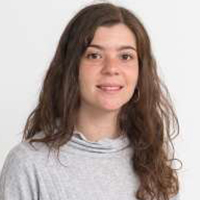
Marta Bosque Fajardo is an ecologist working at the Norwegian Institute of Bioeconomy Research, Division biotechnology and Plant health in Ås, Norway.
Her main interest is the sustainable management of plant pests in arable crops. The last years, she has been working with detection and monitoring of resistance to pesticides and integrated pest management (IPM).
In PurPest she will working with Dr. Gunda Thöming, collecting and identifying the volatile organic compounds from crops attacked by the Cotton bollworm (WP1).
More information:
PARTICIPANTS (14)

SINTEF is Scandinavia's largest independent research institute. In PURPEST we will lead the overall technical project management in the project, while also leading WP2 – Sensor development and optimisation. SINTEF will do detailed characterisation of the collected VOCs in WP1. In WP2 we will develop optical sensors and selective coatings for the detection of the identified VOCs
SINTEF team:
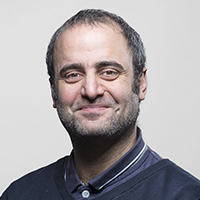
Daniel Nilsen Wright is a senior research scientist at SINTEF. His main area of focus is microelectronic sensors and packaging.
In the PURPEST project he has the responsibility for leading the technical management.
More information:
(Responsible)

NTNU is an international oriented university, has a main profile in science and technology, a variety of programmes of professional study, and great academic breadth that also includes the humanities, social sciences, economics, medicine, health sciences, educational science, architecture, entrepreneurship, art disciplines and artistic activities.

The Julius Kühn Institute (JKI) is the Federal Research Centre for Cultivated Plants in Germany and an autonomous superior federal authority in the portfolio of the Federal Ministry of Food and Agriculture (BMEL).
The Julius Kühn Institute (JKI) maintains research facilities and teams at 10 locations in Germany. The JKI headquarters is based in Quedlinburg.
JKI team:
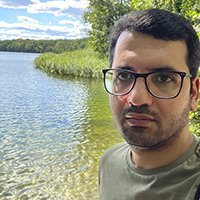
Ali Karimi is a plant biologist working at the Julius Kühn-Institute, Institute for Plant Protection in fruit crops and viticulture, Germany. His main interest is plant-insect interaction, particularly in the chemical plant defenses against insect attacks and how insects can cope with defensive metabolites from their host plants.
In PurPest he is working on the brown marmorated stink bug (Halyomorpha halys). He investigates volatile organic compounds of plant-insect interactions as well as the induction of VOCs in Halyomorpha halys and its host plants under abiotic stress conditions.
More information:


UNIPD team:
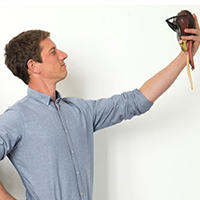
Riccardo Favaro, an entomologist with expertise in chemical ecology and plant-insect interactions.
He has experience with volatiles analysis and electroantennography recording. In multiple insect species he investigated their intra- and inter-specific communication, the volatiles induced in plants and insects after stress conditions. In the project he is responsible for the study of volatiles released by the brown marmorated stink bug Halyomorpha halys at different stages and the attack-induced volatiles from host-plants.
More information:
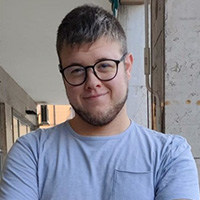
Daniele Zatta, is a Master student in Industrial Chemistry. He is actively collaborating with Analytical chemistry group at the University of Padua under supervision of Prof. Cappellin Luca. His main interest is in the analysis of VOCs utilizing GC-MS and PTR-MS, focusing on material emission. Currently he is working on volatile breath analysis collected from patients with tumours. In PurPest project he is involved in analysis of volatile organic compounds released by the brown marmorated stink bug, Halyomorpha halys.
More information:
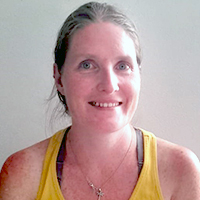 Claire Dumenil, a chemical ecologist with special interest in plant-insect interactions.
Claire Dumenil, a chemical ecologist with special interest in plant-insect interactions.
She has expertise with plant volatile analysis and insect neurophysiology. In multiple insect species of agricultural relevance, she investigated intra- and inter-specific communication, and crop-pest interactions. In the project she is responsible for the study of volatiles released by the brown marmorated stink bug Halyomorpha halys at different stages and the attack-induced volatiles from host-plants.
More information:

The National Institute for Agrarian and Veterinary Research, I. P. (INIAV, I.P.) is the Portuguese State Laboratory, in the area of Agriculture, Forestry and Rural Development, which develops research activities in the agronomic and veterinary areas.
INIAV holds the National Reference Laboratories for plant diseases and pests, for animal diseases, including zoonoses, for analysis of residues of prohibited substances, veterinary drugs and environmental, chemical and microbiological contaminants and other parameters within the scope of Food Safety.

The Plant Nematology Lab of INIAV, is the national reference laboratory for the monitoring and management of diseases caused by nematodes.
In PURPEST, we will use our quarantine facilities to lead greenhouse bioassays with the pinewood nematode, a quarantine pest of pines, and collect volatile samples for profiling. Also, we will lead Work Package 6 – Communication, Dissemination and Exploitation, and help spread the word about PURPEST activities and results.
INIAV team:
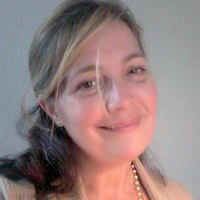
Maria L. Inácio is the head of the Nematology lab of INIAV (NemaINIAV), the Portuguese reference Lab for Plant Health, hence the person with the responsibility for planning and executing tasks in several ongoing projects related to plant parasitic nematodes. In addition, ML Inácio with her own team is responsible for executing the national plans for several quarantine nematodes (namely the the pinewood nematode Bursaphelenchus xylophilus, Globodera pallida and G. rostochiensis, Meloidogyne fallax, M. chitwoodi, M. luci and M. enterolobii) and for the certification of seeds, vines and orchards.
In PurPest, ML Inácio will lead field work connecting with forest owners’ associations, NPPO and industry. She leads WP6.
More information:
(Responsible)
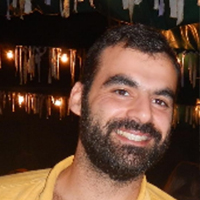
Jorge M. S. Faria is a plant biotechnologist working at the Nematology lab of PURPEST partner INIAV (PT).
He is specialized in the characterization of volatiles from in vitro pine cultures infected with the pinewood nematode (PWN), through Gas Chromatography coupled to Mass Spectrometry. In PURPEST, he will collect and assist in identifying volatiles as a fingerprint of PWN presence.
More information:
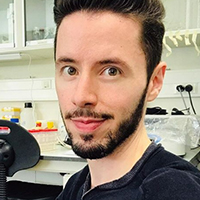
David Pires is a Plant Nematologist working at the Nematology lab of PURPEST partner INIAV (PT). He is specializing in biological control of plant-parasitic nematodes using microbial antagonists.
In PURPEST, he will assist in science communication and other outreach activities.
More information:
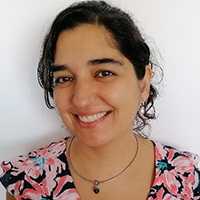
Maria João Camacho is a Plant Nematologist working at the Nematology lab of PURPEST partner INIAV (PT). She is specializing in detection methods of plant-parasitic nematodes. She has been developing PCR and LAMP based sensors for PPN detection.
In PURPEST, she is working on WP6 - Dissemination, communication and exploitation.
More information:

Ana Alves is a IT Technician at INIAV, in the Department of Logistics and Information Systems.
She is a senior programmer, web designer and regularly does graphic design work, layouts and production materials (eg: logos; brochures; roll-ups; design of event programs, seminars, lectures, national and international meetings; creation of covers and content for various publications; PowerPoint presentations...)
In PurPest, Ana Alves made the logo and this website.
 The Phytophthora Research Centre Lab of the Faculty of Forestry and Wood Technology at Mendel University in Brno (MENDELU) hosts a research team focused on research of Phytophthora species and the diseases they are causing.
The Phytophthora Research Centre Lab of the Faculty of Forestry and Wood Technology at Mendel University in Brno (MENDELU) hosts a research team focused on research of Phytophthora species and the diseases they are causing.
In PURPEST, we will study within Work Package 1 the volatile profiles of Phytophthora and other oomycete species, and Fagus sylvatica and Quercus suber trees growing in soil artificially infested with these pathogens. Also, we will lead Work Package 4 – Tests and demonstration in relevant environment.
Phytophthora team:

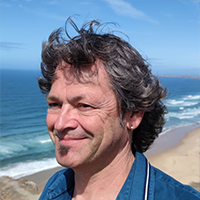
Thomas Jung is a forest pathologist working at the Phytophthora Research Centre Lab of PURPEST partner MENDELU (CZ).
He is specialized in pathology, ecology, taxonomy, diversity, biogeography and evolution of oomycetes from the genera Phytophthora, Halophytophthora and Nothophytophthora.
In PURPEST, he will collect and assist in identifying volatiles as a fingerprint of Phytophthora presence and lead Work Package 4 – Tests and demonstration in relevant environment.
More information:
(Responsible)
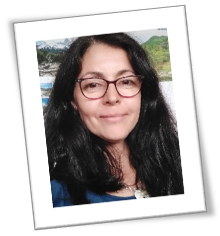
Marília Horta Jung is a biotechnology engineer fascinated by Oomycetes and the fate of the habitats where they can be found as natural part of ecosystems or as unwanted invaders. As team member of the Phytophthora Research Centre lab, her main research interests are: 1) the genomic basis of aggressiveness and invasiveness of Phytophthora spp. and of susceptibility and resistance of forest tree species and 2) the detection and description of new Phytophthora spp. in Europe and other continents and assessment of their potential host ranges among European forest tree species.
In PURPEST, she will be involved in the production of biological material for VOCs analysis (pure microbial cultures and forest trees infected by Oomycetes) and assisting with the collection of VOCs.
More information:

Anna Hýsková
Petra Dolezelova
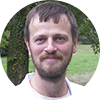
Zoltán Nagy is a biologist and ecologist. His interest in Phytophthoras is mainly related to their diversity in natural habitats. This includes detection and identification of Phytophthora species in nature, and studying their population structure, genetic and spatial diversity. As a participant in PURPEST, he will take part in the infection trials and will collect the volatile compounds for further analysis.
More information:
Miroslav Berka is a molecular biologist and biotechnologist. He is focusing on omics studies, especially proteomics, metabolomics and volatolomics. He mainly uses these techniques to study plant molecular processes and find ways to suppress environmental stresses and increase plant production and yield.
In PurPest, he studies and analyses the volatile compounds released from Phytophthora cultures and Phytophthora-infected plants.
 Volatile AI combines chemical analysis instrumentation with artificial intelligence algorithms.
Volatile AI combines chemical analysis instrumentation with artificial intelligence algorithms.
Our products include a gas sensor platform for chemical and electronic nose research, as well as, algorithms and data science to interpret chemical composition data from virtually any lab and out-of-lab analysis tools.
You can check out our Scout2 instrument here: https://volatile.ai/enose

airmotec AG is part of the Chromatotec Group, which designs and manufactures online analytical solutions for gases and liquids characterization. airmotec AG is integrating the research & development activities, which are completely integrated in the development strategy of the group, with a policy of continuous improvement of the quality of the instruments. For this, the company integrates engineers with strong experience and knowledge in analytical solutions and dedicated laboratories. airmotec also develops its own proprietary electronics and IT.
For PurPest project, airmotec will use its expertise in VOCs analysis to develop and implement a portable GC system to monitor and analyse BVOCs.

airmotec AG team:
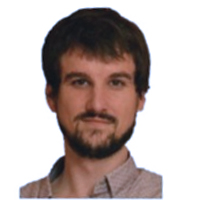
Damien Bazin is analytical manager at airmotec. He is specialized in continuous and automatic characterization of gases and liquids by chromatographic techniques.
In PURPEST, he will lead the design, integration and manufacturing of portable prototypes for the detection of specific VOCs.
More information:
(Responsible)
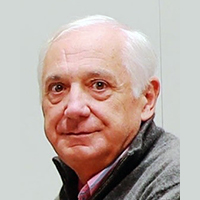
Franck Amiet is the founder and president of airmotec AG. He created with his wife Patricia the international Group Chromatotec, in 1986. Doctor in biochemistry, he is president of airmotec since 1996 and expert in gas analysis (VOC, permanent gas and sulphur compounds).
More information:
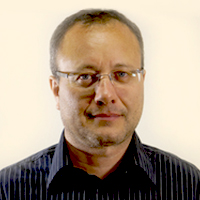
Stéphane Le Calvé is a scientific consultant at airmotec (FR).
He has an extensive experience in analytical chemistry applied to the measurement of Volatile Organic Compounds (VOC) and Semi-Volatile Organic Compounds (SVOC) in air. His main research topics concern the development of on-line and continuous analytical methods based on microfluidic devices and the study of VOC sorption on various materials. He was involved in 37 projects (21 times as coordinator) including 6 European projects. He has supervised 25 PhD thesis. He is the co-author of 115 publications and 6 patents as first author.
In PURPEST, he will provide expertise in sampling, pre-concentration devices and analysis of VOCs and SVOCs.
More information:
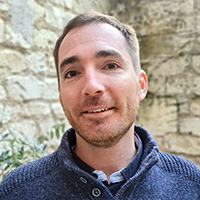 Jean-Philippe Amiet has a Master diploma in chemistry at the Polytechnical Institute ENSCBP par which integrated a 3 years project for the development and integration of an online GCMS for VOCs monitoring in ambient air at ultra trace levels at Chromatotec Group.
Jean-Philippe Amiet has a Master diploma in chemistry at the Polytechnical Institute ENSCBP par which integrated a 3 years project for the development and integration of an online GCMS for VOCs monitoring in ambient air at ultra trace levels at Chromatotec Group.
He has been Export Project Manager between 2013 and 2020, in charge of technical and sales supervision of Chromatotec office in Beijing.
He was responsible for Asia and Middle East area. In 2020, he became Sales and Marketing Manager, responsible for Sales and After-Sales department. In 2022, he took over the responsibilities of General Manager of airmotec and other Chromatotec group companies.
He has been involved in the development of an analytical system for VOCs airmOzone and an auto-GCMS system. He was also project manager in certification projects: ATEX and CSA hazardous areas for MEDOR instruments using pressurized wall-mounted boxes, ATEX and IECex certification for pressurized and explosion proof process GC. He also managed a project of integration of online analyzer for BTEX and VOCs analysis in hazardous areas using pressurized boxes.
More information:
 Chrystèle Moriceau is Executive assistant and Communication Manager of Chromatotec group. With a diploma of applicable foreign languages to international business and communication, she has more than 20 years of expertise in communication and administrative management.
Chrystèle Moriceau is Executive assistant and Communication Manager of Chromatotec group. With a diploma of applicable foreign languages to international business and communication, she has more than 20 years of expertise in communication and administrative management.
More information:
 The Agricultural Economics and Rural Policy (AEP) Group of Wageningen University and Research, leading Work Package 5 – “Analyze the impact and implementation of PurPest”, will conduct and facilitate research unveiling the socioeconomic impact of PurPest. More specifically, the identification of the preferred management options, the assessment of the cost-benefit balance of the VOC-sensor and its effect on different stakeholders, the socioeconomic and ecological damage of the PurPest species and the relevant regulatory framework will aid in the development of policy recommendations regarding the most appropriate management options/interventions, to tackle the challenge of biological invasions. Ultimately, the expected outcome of WP5 is to increase the knowledge about the benefits and costs of invasive species control resulting in better control policies at the EU and member state level supported by stakeholders.
The Agricultural Economics and Rural Policy (AEP) Group of Wageningen University and Research, leading Work Package 5 – “Analyze the impact and implementation of PurPest”, will conduct and facilitate research unveiling the socioeconomic impact of PurPest. More specifically, the identification of the preferred management options, the assessment of the cost-benefit balance of the VOC-sensor and its effect on different stakeholders, the socioeconomic and ecological damage of the PurPest species and the relevant regulatory framework will aid in the development of policy recommendations regarding the most appropriate management options/interventions, to tackle the challenge of biological invasions. Ultimately, the expected outcome of WP5 is to increase the knowledge about the benefits and costs of invasive species control resulting in better control policies at the EU and member state level supported by stakeholders.

AEP team:
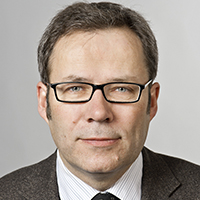 Justus Wesseler
Justus Wesseler
is since 2014 full professor of the chair group AEP at WU. From 2011 to 2013 he was a full professor of agriculture and food economics at Technische Universität München.
He has extensive experience working in international environments including working experience in Brazil and Paraguay as well as in coordinating and participating in medium and large-scale international projects.
He is the coordinator of the EU-funded EXIOPOL, FP7 PRICE, and BioMonitor (monitoring the Bioeconomy project).
He is the president-elect of the International Consortium of Applied Bioeconomy Research (ICABR), co-editor of AgBioForum, board member of the Wageningen Graduate School of Social Sciences (WASS) and a member of the scientific advisory board of the Science Campus Plant-Based Bioeconomy Halle, Germany.
More information:
(Responsible)
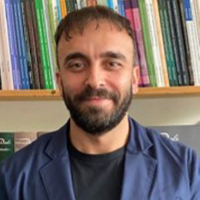
Kutay Cingiz is a researcher at the AEP-WU. He worked on the BioMonitor and European Research Area (ERA) CoBioTech Sustainable Co-Production projects. His research interests focus on bioeconomy, sustainability, circular economy, and mathematical economy.
He received his doctoral degree in Economics from Maastricht University in 2018. Also, he is a member of the employee council for SSG and WUR, and the lead of the strategy and finance sub-council.
More information:
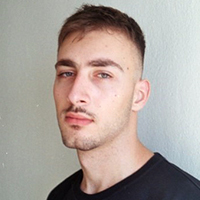
Stelios Kartakis Stelios Kartakis is a PhD candidate in the Agricultural Economics and Rural Policy Group of Wageningen University and Research.
More information:
 The Directorate General for Food and Veterinary Medicine (DGAV) is a Portuguese State body whose mission is to define, execute and evaluate policies for food safety, animal protection and animal health, plant protection and plant health, being invested in the functions of the National Veterinary and Phytosanitary Authority, the National Authority for Veterinary Medicines and Authority responsible for the management of the Food Safety System.
The Directorate General for Food and Veterinary Medicine (DGAV) is a Portuguese State body whose mission is to define, execute and evaluate policies for food safety, animal protection and animal health, plant protection and plant health, being invested in the functions of the National Veterinary and Phytosanitary Authority, the National Authority for Veterinary Medicines and Authority responsible for the management of the Food Safety System.
DGAV team:
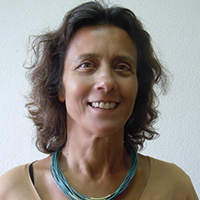 Clara Serra is an official on the Portuguese Plant Health Inspection Service from DGAV (General Directorate of Food and Veterinary), owning a MSc. in IPM from the Higher Institute of Agronomy, University of Lisbon. She has been at DGAV for 36 years, always working in the plant health and plant propagating material division. C. Serra has been responsible for issuing specific technical requirements for Heat treatment and Methyl bromide fumigation for wood and wood packaging material and heat treatment of bark and for the supervision of authorized heat treatment companies. She is also responsible for elaborating the Contingency plan for Citrus greening and the Contingency plan for Xylella fastidiosa and Tecia solanivora.
Clara Serra is an official on the Portuguese Plant Health Inspection Service from DGAV (General Directorate of Food and Veterinary), owning a MSc. in IPM from the Higher Institute of Agronomy, University of Lisbon. She has been at DGAV for 36 years, always working in the plant health and plant propagating material division. C. Serra has been responsible for issuing specific technical requirements for Heat treatment and Methyl bromide fumigation for wood and wood packaging material and heat treatment of bark and for the supervision of authorized heat treatment companies. She is also responsible for elaborating the Contingency plan for Citrus greening and the Contingency plan for Xylella fastidiosa and Tecia solanivora.
She has been participating as a speaker on a regular basis on plant health issues namely training of inspectors for survey programs of plant pests, awareness campaigns, workshops for professional operators and producers and special trainings for inspectors conducting supervision on authorized heat treatment companies. C. Serra has been participating in courses regarding simulation exercises to evaluate the response of the official services to plant pest outbreaks.
More information:
(Responsible)
 Centro PINUS is a non-profit private association gathering the main stakeholders from the Portuguese pine-based sector, including representatives of forest landowners, contractors, the national agronomy research agency (INIAV), the national forest services (ICNF), Higher Education entities and the main industrial players.
Centro PINUS is a non-profit private association gathering the main stakeholders from the Portuguese pine-based sector, including representatives of forest landowners, contractors, the national agronomy research agency (INIAV), the national forest services (ICNF), Higher Education entities and the main industrial players.
Its main goal is to improve maritime pine forest production and productivity according to industry needs.
Centro Pinus team:
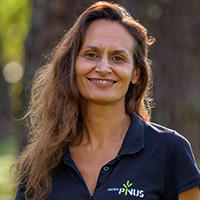 Susana Carneiro is a forester with a master’s degree in Applied Ecology. She has been the Technical Director at Centro PINUS since 2005, multi stakeholder non-profit organization promoting maritime pine forest. One of her roles is monitoring Forest policies and advocacy. She is also the interface between R&D institutions and forest stakeholder’s and has extensive experience in developing research agendas and in result dissemination. Before joining Centro PINUS she was a lecturer at the Polytechnic Institute of Viana do Castelo. In PurPest she will represent the industry sector and forest owners’ associations.
Susana Carneiro is a forester with a master’s degree in Applied Ecology. She has been the Technical Director at Centro PINUS since 2005, multi stakeholder non-profit organization promoting maritime pine forest. One of her roles is monitoring Forest policies and advocacy. She is also the interface between R&D institutions and forest stakeholder’s and has extensive experience in developing research agendas and in result dissemination. Before joining Centro PINUS she was a lecturer at the Polytechnic Institute of Viana do Castelo. In PurPest she will represent the industry sector and forest owners’ associations.
More information:
(Responsible)

Established in 2009, the HERCULES Lab is a research infrastructure from University of Évora, devoted to the study and valorisation of cultural heritage, focusing on the integration of physical and material sciences methodologies and tools in interdisciplinary approaches.
University of Évora :
HERCULES Lab :
HERCULES Lab team:
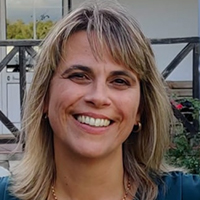 Dora Maria Teixeira, PhD in Chemistry, a is Assistant Professor in the Chemistry and Biochemistry Department of Évora University. She is an Integrated Researcher at HERCULES Laboratory - Cultural Heritage Studies and Safeguard, and Collaborator in MED- Mediterranean Institute for Agriculture, Environment and Development.
Dora Maria Teixeira, PhD in Chemistry, a is Assistant Professor in the Chemistry and Biochemistry Department of Évora University. She is an Integrated Researcher at HERCULES Laboratory - Cultural Heritage Studies and Safeguard, and Collaborator in MED- Mediterranean Institute for Agriculture, Environment and Development.
She is author of more than 60 Articles in Peer Review International Journals and 5 Book Chapters; participated in more than 30 Scientific Projects, in three of which as Principal Investigator, and as Partner Principal Investigator in one European Project. Through her 30 years’ academic career, she held several University Management Positions at Évora University.
More information:
(Responsible)
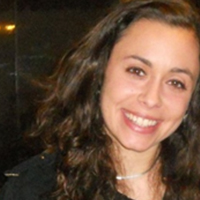 Ana Galveias is a Biochemistry PhD graduate from University of Évora and is a researcher at the Hercules Laboratory under the PURPEST project. In PURPEST, she will contribute to the analysis and identification of volatiles as a characteristic of the PWN presence.
Ana Galveias is a Biochemistry PhD graduate from University of Évora and is a researcher at the Hercules Laboratory under the PURPEST project. In PURPEST, she will contribute to the analysis and identification of volatiles as a characteristic of the PWN presence.
More information:
 Marina Costa has a bachelor’s degree in Biochemistry and a master’s degree in Chemistry from the University of Évora and is currently enrolled in the PhD program in Chemistry at the same institute in the HERCULES laboratory. She has experience in characterization techniques such as UV-Vis and FTIR spectroscopy, DLS (Dynamic Light Scattering), SEM-EDX, and NMR (Nuclear Magnetic Resonance). Recently, she acquired knowledge in the characterization of secondary metabolites of plants by LC and GC-MS through the PratyOmics project.
Marina Costa has a bachelor’s degree in Biochemistry and a master’s degree in Chemistry from the University of Évora and is currently enrolled in the PhD program in Chemistry at the same institute in the HERCULES laboratory. She has experience in characterization techniques such as UV-Vis and FTIR spectroscopy, DLS (Dynamic Light Scattering), SEM-EDX, and NMR (Nuclear Magnetic Resonance). Recently, she acquired knowledge in the characterization of secondary metabolites of plants by LC and GC-MS through the PratyOmics project.
More information:
 João Trindade recently got his master's degree in Biochemistry from the University of Évora, with his dissertation focused on plant metabolomics through UHPLC-QTOF-MS. He is currently a researcher at Hercules Laboratory under the PURPEST project, where he will contribute to the identification of characteristic organic volatile compounds through GC-MS.
João Trindade recently got his master's degree in Biochemistry from the University of Évora, with his dissertation focused on plant metabolomics through UHPLC-QTOF-MS. He is currently a researcher at Hercules Laboratory under the PURPEST project, where he will contribute to the identification of characteristic organic volatile compounds through GC-MS.
More information:
PARTNERS (3)
 Fundamental and applied research in chemical ecology (Farce) is a lab from Institut de Biologie de l'Université de Neuchâtel. We study the role of chemicals in the interactions among organisms, with an emphasis on plant-insect interactions. We are interested in the mechanisms, as well as the ecological and evolutionary implications of these interactions. Our research has lead to several key discoveries of how plant-produced chemical mediate the interactions among plants, herbivores that feed on the plants, and the natural enemies of these herbivores. In addition to trying to complete our fundamental understanding of these interactions, we currently explore ways to use this knowledge for the development of novel crop protection strategies.
Fundamental and applied research in chemical ecology (Farce) is a lab from Institut de Biologie de l'Université de Neuchâtel. We study the role of chemicals in the interactions among organisms, with an emphasis on plant-insect interactions. We are interested in the mechanisms, as well as the ecological and evolutionary implications of these interactions. Our research has lead to several key discoveries of how plant-produced chemical mediate the interactions among plants, herbivores that feed on the plants, and the natural enemies of these herbivores. In addition to trying to complete our fundamental understanding of these interactions, we currently explore ways to use this knowledge for the development of novel crop protection strategies.
Farce team:

Agroscope (part of WBF) is the Swiss center of excellence for agronomic research. Its research is primarily targeted towards practice-oriented applied research for the agriculture and food sector. Involved in this project is the Biosafety Research Group that is engaged in studying and assessing the environmental impact of invasive species and organisms used for pest control in agriculture including biological control agents and genetically engineered organisms.
Agroscope team:
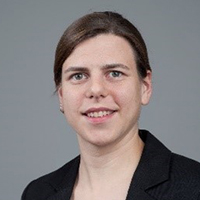 Jana Collatz is an Entomologist/Ecologist and research associate of the Biosafety research group.
Jana Collatz is an Entomologist/Ecologist and research associate of the Biosafety research group.
More information:
(Responsible)
 Kiran Horrocks is an Entomologist/Ecologist and postdoctoral scientist in the Biosafety research group.
Kiran Horrocks is an Entomologist/Ecologist and postdoctoral scientist in the Biosafety research group.
More information:
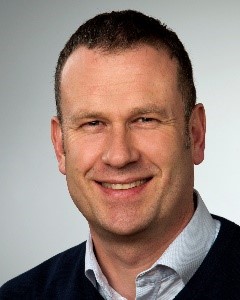 Jörg Romeis is an Entomologist/Ecologist and Head of the Biosafety research group.
Jörg Romeis is an Entomologist/Ecologist and Head of the Biosafety research group.
More information:
UWAR team:
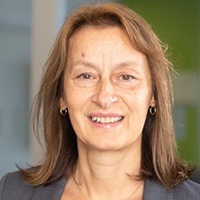 Marina Colez is a professor in the School of Engineering at the University of Warwick. She is interested in the development of CMOS based and CMOS compatible acoustic wave sensors for health and environmental monitoring, especially particle sensing and VOC monitoring. Since 2001, she has been leading the work in the area of acoustic wave devices within the Microsensors & Bioelectronics Laboratory (MBL). Professor Cole has published over 80 publications in scientific journals and conference proceedings. She is co-founder and Director of university spin-out company Sorex Sensors Ltd.
Marina Colez is a professor in the School of Engineering at the University of Warwick. She is interested in the development of CMOS based and CMOS compatible acoustic wave sensors for health and environmental monitoring, especially particle sensing and VOC monitoring. Since 2001, she has been leading the work in the area of acoustic wave devices within the Microsensors & Bioelectronics Laboratory (MBL). Professor Cole has published over 80 publications in scientific journals and conference proceedings. She is co-founder and Director of university spin-out company Sorex Sensors Ltd.
In the PURPEST, Marina will be working on the development of solidly mounted resonators (SMRs) for the detection of plant VOCs.
(Responsible)
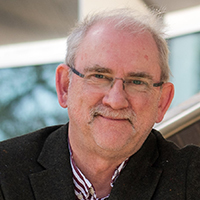 Julian Gardner
Julian Gardner
Professor of Electronic Engineering at the University of Warwick.
UWAR - the Microsensors and Bioelectronic Laboratory is based in the School of Engineering with the University of Warwick (UWAR) and has over 25 years of experience working in the field of artificial olfaction and electronics. We are interested in developing smart microsensors/MEMS devices for the detection of simple and complex odour headspaces. In particular, based upon small low-power coated piezoelectric sensors (Solidly Mounted Resonators) and metal oxide VOC sensors. We also research on a simple 3D printed micro-GC for enhancing VOC specificity.
More information:
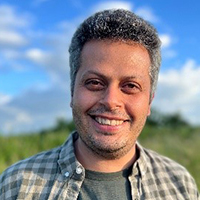 Siavash Esfahani is a senior research fellow in the School of Engineering at the University of Warwick. He is interested in developing a gas measurement system based on different technologies for various applications, such as environmental monitoring and medical gas. Siavash Esfahani received the M.Eng. degree in electronic engineering from the University of Birmingham, Birmingham, U.K., in 2012, and the M.Sc. degree in electronic engineering with sensor technology and the PhD degree from the University of Warwick, Coventry, U.K., in 2014 and 2018, respectively. His PhD dissertation was on electronic nose instrumentation for biomedical applications.
Siavash Esfahani is a senior research fellow in the School of Engineering at the University of Warwick. He is interested in developing a gas measurement system based on different technologies for various applications, such as environmental monitoring and medical gas. Siavash Esfahani received the M.Eng. degree in electronic engineering from the University of Birmingham, Birmingham, U.K., in 2012, and the M.Sc. degree in electronic engineering with sensor technology and the PhD degree from the University of Warwick, Coventry, U.K., in 2014 and 2018, respectively. His PhD dissertation was on electronic nose instrumentation for biomedical applications.
In the PURPEST, Siavash will work with the UWAR team to develop solidly mounted resonators (SMRs) to detect plant VOCs.
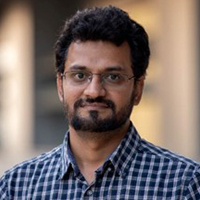 Usman Yaqoob is a UKRI Research Fellow in the School of Engineering at the University of Warwick, specializing in the development of gas/VOC sensors and energy harvesting devices. He earned his PhD in Electrical Engineering from the University of Ulsan, Ulsan, South Korea.
Usman Yaqoob is a UKRI Research Fellow in the School of Engineering at the University of Warwick, specializing in the development of gas/VOC sensors and energy harvesting devices. He earned his PhD in Electrical Engineering from the University of Ulsan, Ulsan, South Korea.
As part of the PURPEST project, Usman works with the UWAR team to develop a micro-GC system, develop coatings, and conduct testing and analysis of the SMR e-nose system for detecting plant VOCs.
More information:











